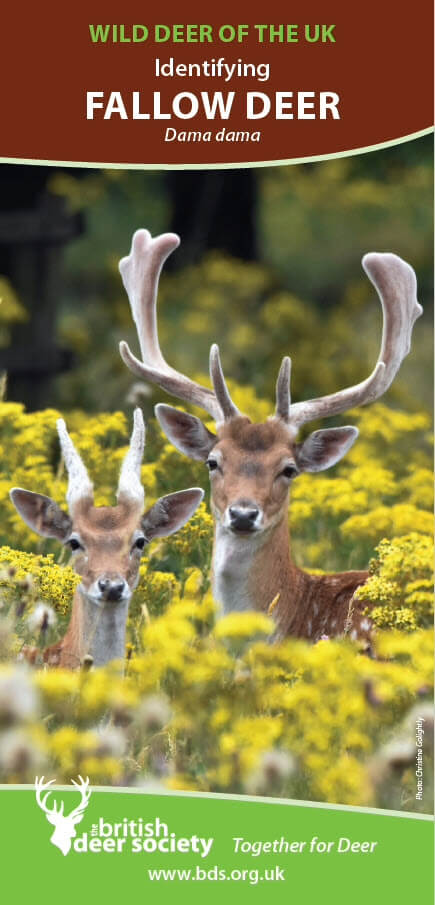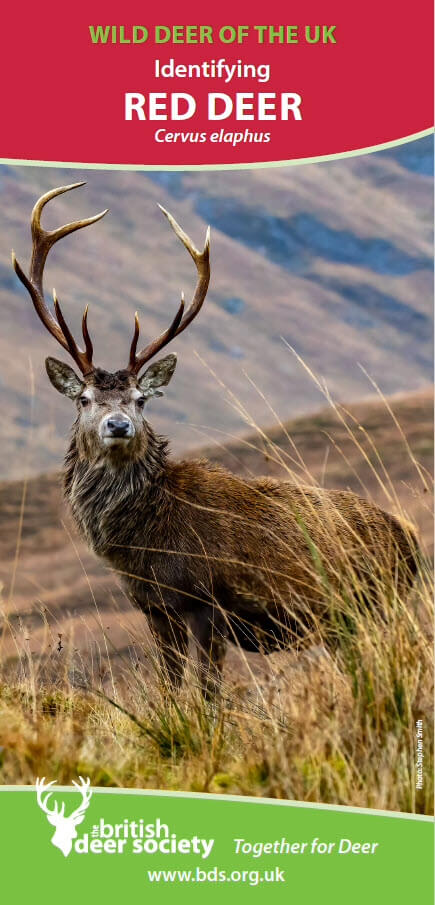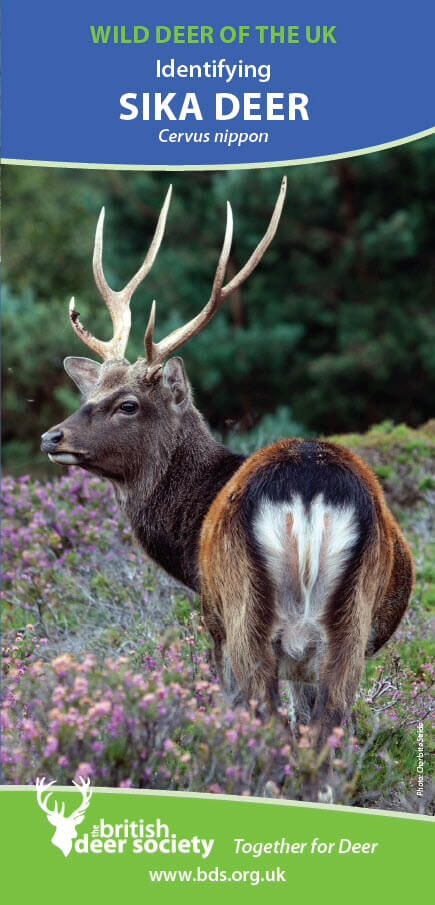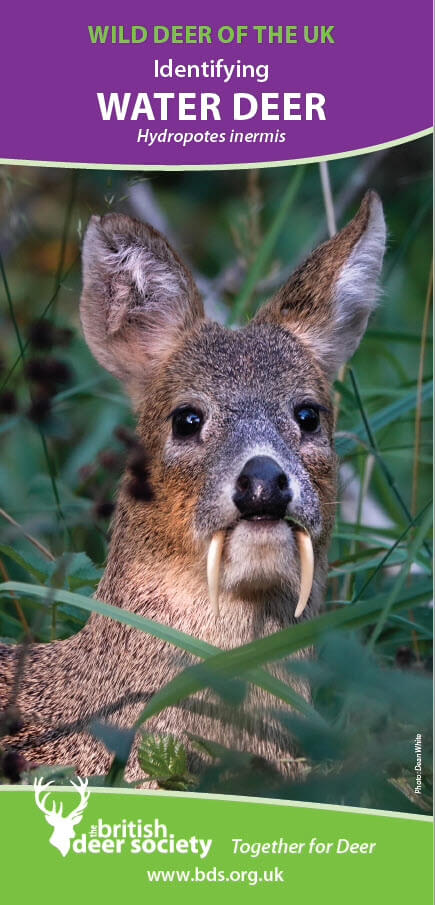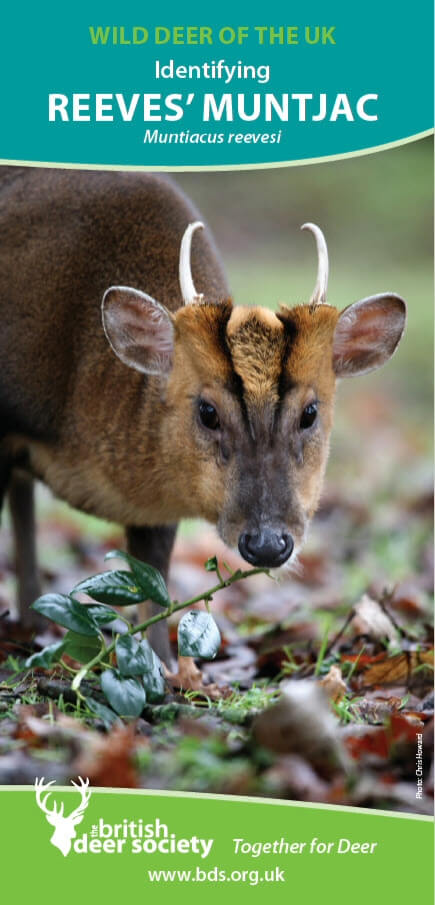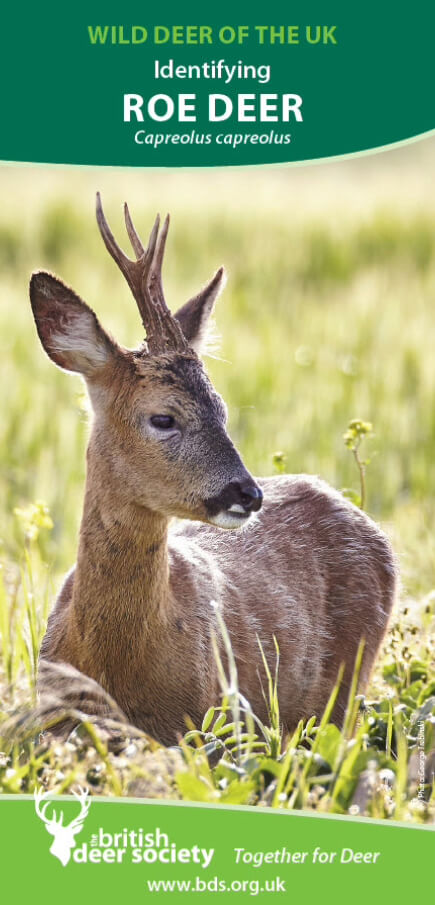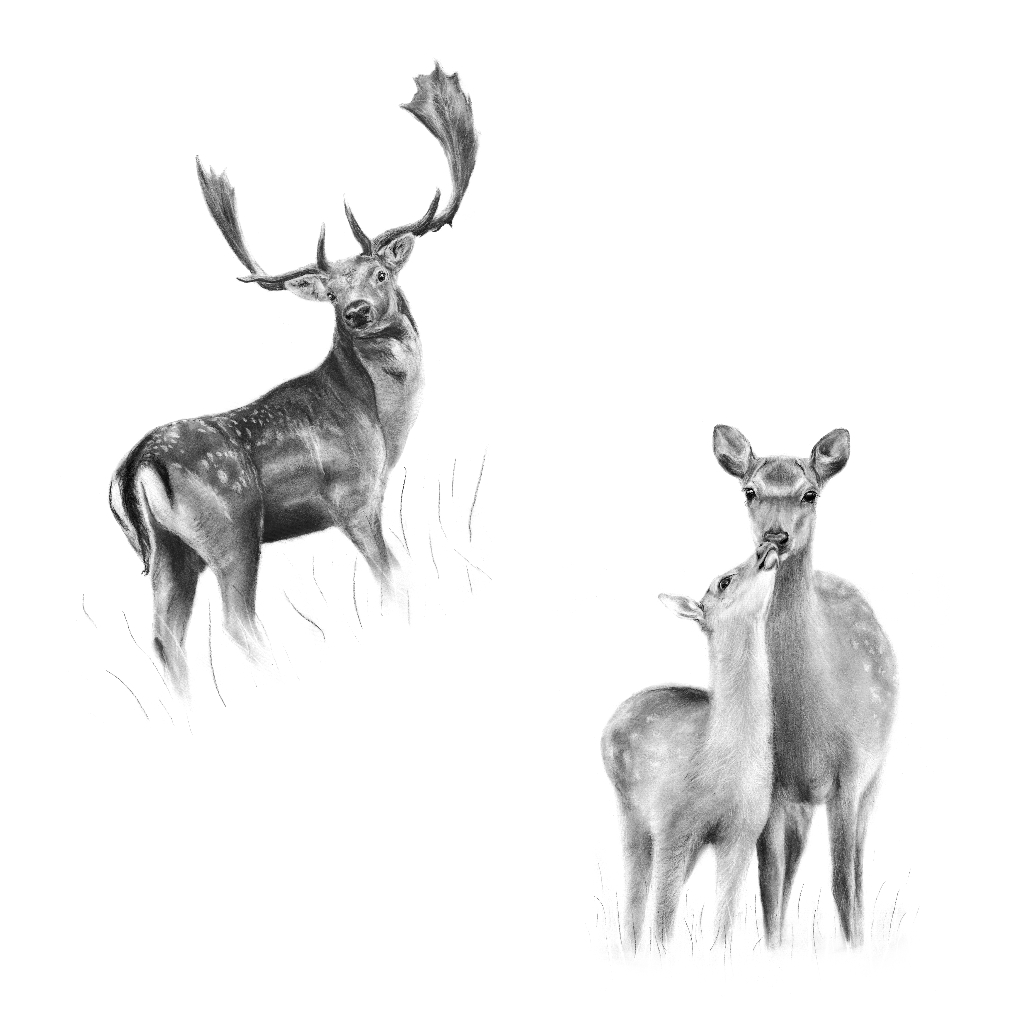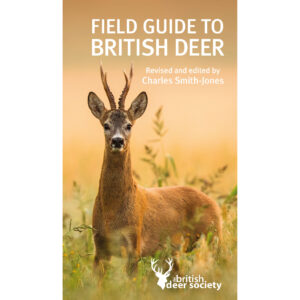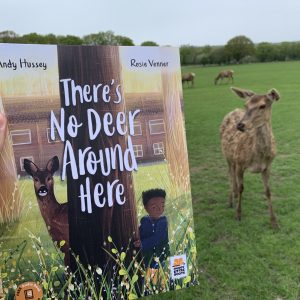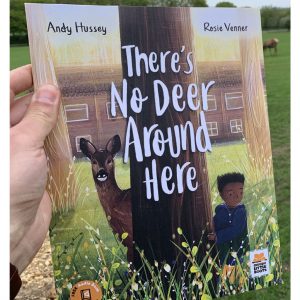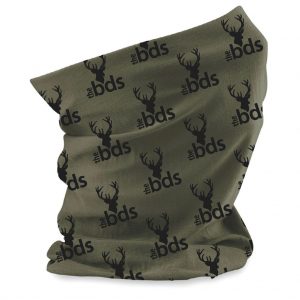FREE DEER IDENTIFICATION RESOURCES FROM THE BDS
It’s always a wonderful feeling when you spot a deer – as they do have a tendency to be quite elusive . When you do spot them, they can still vanish in the blink of an eye. This can often make it quite hard to identify which deer you’ve seen.
You can use our free resources to help you learn how to confidently identify each of the 2 native and 4 non-native deer species that are found in the UK.
FULL LIST OF FREE DEER ID RESOURCES
- UK Deer ID Guides (download & print for free)
- UK Deer Species Pages: include information, videos and photos for each species
- 'Which Deer Is This?' Identification Game: test your deer ID skills with this photo game
- Ask A BDS Expert: get help with identifying a deer from one of our experts
- Visit the BDS Video Library: learn about deer behaviour, habitats and more!
HOW TO IDENTIFY A DEER IN THE UK: 5 TOP QUESTIONS TO ASK YOURSELF
The good news is there are only 6 species of wild deer in the UK! The bad news is that it can be a little difficult to tell them apart at different times of year, especially if you didn’t get a clear look so you can pick out key identification features. We’re here to help though!
Here are a few top questions to ask yourself when you’re trying to identify a deer in the UK:
1. How tall was the deer at the shoulder?
Was it a large deer standing around 1m tall?
Or was it a medium, or quite small deer, standing around 50-70cm tall at the shoulder?
2. Where-abouts in the country did you see the deer and what type of habitat was it in?
Some of our deer are found all over the country, whilst others are currently only found in specific regions. For example, you wouldn’t expect to see water deer in the Scottish Highlands.
Some deer can be found in several different types of habitat, whilst others tend to prefer more specific habitats – like wet fenlands. For example, roe deer have a preference for woodland edges or areas with copses, hedgerows and woody scrubs.
3. Did the deer have obvious antlers? How did they look?
At certain times of year the male deer of 5 of the UK deer species have distinctive antlers, although they cast and regrow them after their rutting seasons. Did the deer you see have wide, flat, palmate antlers or narrow, pointy ones? Were the antlers short or very long with multiple points?
4. Was the deer alone or in a group?
Some UK deer species tend to be found in herds, whilst others are more often seen on their own, in pairs or just with their young.
5. Did you see any key identifying features?
Did the deer have an obvious tail or no tail at all? Did the deer have a distinctly white rump with pronounced markings, or more of a plain yellow coloured rump? Did the deer have tusks (elongated teeth)?
Need more help identifying which deer you saw?
FREE UK DEER IDENTIFICATION GUIDES
You can use our free downloadable guides to help you identify which deer you’ve seen. You are more than welcome to print these guides to use whilst you’re out and about, to share with family and friends or for educational purposes.
If you’re still not sure, or would like an expert opinion, then please don’t forget you can also use our other free resource: Ask A BDS Expert – to help you.
MEDIUM-LARGE SIZED DEER IDENTIFICATION GUIDES
If you think the deer you saw was approaching 1m tall at their shoulder or over 1m tall at their shoulder then it’s likely you saw either a fallow, sika or red deer.
Watch out! Sika in the summer can have spotty coats too, which can get them mistaken for fallow deer. If they have a distinctive tail with a thick dark/coloured line down it they are most likely fallow. If their rump looks all white with indistinct dark bordering and their tail has just a thin black line down the centre, they might be a sika!
SMALL-MEDIUM SIZED DEER IDENTIFICATION GUIDES
If you think the deer you saw was less than 1m tall at their shoulder or around 50cm tall at the shoulder, then it’s likely you saw a roe deer, water deer or muntjac.
Chinese water deer are mostly found in Bedfordshire, Cambridgeshire, and Norfolk, but their range is slowly expanding south and westwards. Muntjac are more widely distributed across much of the south and Midlands, but can be very secretive.
Roe deer are found across most of the UK. They are most likely to be the deer you saw!
MORE FREE IDENTIFICATION RESOURCES
In addition to downloading our free ID guides you can also visit our 6 UK deer species‘ pages. Each page includes a wealth of information about each deer species, videos and and an extensive photo gallery that provides a showcase for each species key identifying features.
1. RED DEER
2. SIKA DEER
3. FALLOW DEER
4. ROE DEER
5. CHINESE WATER DEER
6. REEVES’ MUNTJAC
Don’t forget! You can also drop our experts a message and they will try to help you identify the deer you saw. Please include any photographs you managed to take and any questions about the deer or its behaviour that you may have.
TEST YOUR ID SKILLS! HOW MANY UK DEER SPECIES CAN YOU IDENTIFY CORRECTLY?

PLAY: WHICH DEER IS THIS?
How to play: look at each photograph and note down which deer species you think is shown. You get bonus points if you can also identify if the deer shown is/are male or female. Then, when you’re ready, hover over the image to reveal if you identified the deer correctly!
RED DEER STAG
FALLOW DEER BUCK
RED DEER HINDS
ROE DEER
ROE DEER BUCK
MUNTJAC BUCK
SIKA HINDS
FALLOW DEER DOE
WATER DEER BUCK
How did you do? If you enjoyed the game and would like to keep honing your deer identification skills, why not follow our Facebook page or Instagram as we share photographs and fun and fascinating deer trivia there all the time!
Help Us Continue Educating & Inspiring About Deer for Free
If our free resources about deer in the UK have been valuable to you, please consider supporting us. Your contribution will help us keep these resources accessible to everyone. Here’s how you can support our work:
ALL OUR FREE DEER IDENTIFICATION RESOURCES
- UK Deer ID Guides (download & print for free)
- UK Deer Species Pages: include information, videos and photos for each species
- 'Which Deer Is This?' Identification Game: test your deer ID skills with this photo game
- Ask A BDS Expert: get help with identifying a deer from one of our experts
- Visit the BDS Video Library: learn about deer behaviour, habitats and more!




